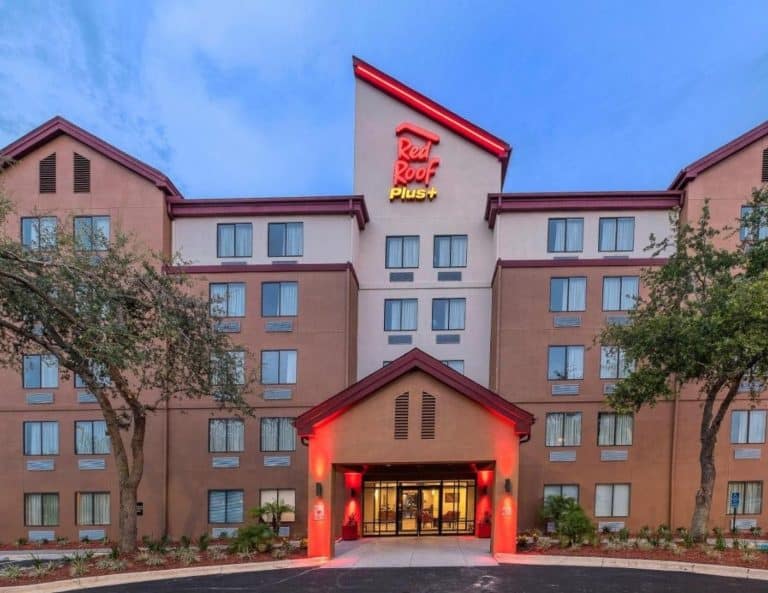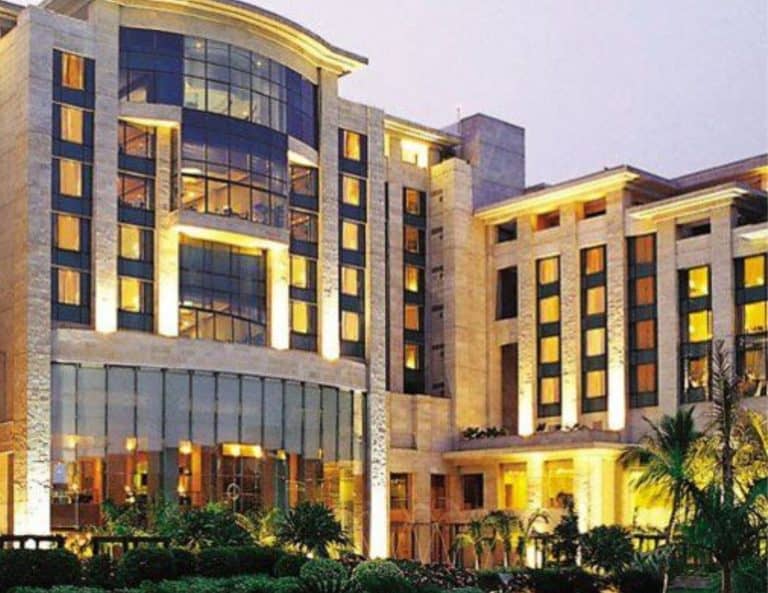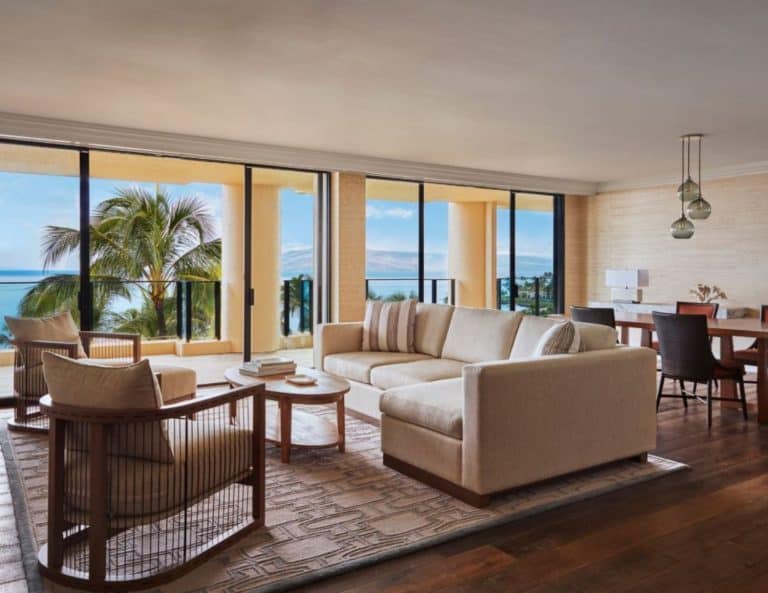Looking to book a hotel room but wondering why they can be so pricey?
If you’re short on time, here’s a quick answer to your question: Hotels are expensive due to various factors such as location, amenities, demand, and operating costs.
In this article, we will delve deeper into the reasons behind the high costs of hotels and explore the factors that contribute to their pricing.
From prime locations to luxurious amenities, we’ll uncover the secrets behind hotel pricing and provide insights into how you can find the best deals without breaking the bank.
Location Matters
When it comes to understanding why hotels are so expensive, one key factor to consider is location. The location of a hotel can greatly impact its pricing, as hotels in prime or desirable locations often come with a higher price tag. Let’s take a closer look at some of the reasons why location matters when it comes to hotel pricing.
Demand for Prime Locations
Hotels located in popular tourist destinations or bustling city centers are in high demand. Travelers are often willing to pay a premium to stay in these prime locations, where they can easily access attractions, restaurants, and entertainment options. The higher demand for hotels in these areas drives up the prices, as hoteliers know they can charge more due to the convenience and desirability of the location.
Expensive Real Estate
In many cases, hotels in prime locations are situated on expensive real estate. This means that hotel owners have to bear the cost of purchasing or renting the land, which can be quite substantial. The high cost of real estate in these sought-after areas is often reflected in the pricing of hotel rooms. Additionally, hotels in prime locations may also have higher property taxes and insurance costs, further adding to their overall expenses.
Access to Attractions and Amenities
Another reason why hotels in prime locations tend to be more expensive is the easy access they provide to attractions and amenities. Guests staying in these hotels can save time and money on transportation, as they can simply walk to nearby tourist sites, shopping centers, or restaurants. The added convenience and accessibility come at a premium, making hotels in prime locations a popular choice for travelers willing to pay extra for the convenience.
Amenities and Services
One of the main reasons why hotels can be expensive is due to the range of amenities and services they offer to their guests. These amenities are designed to enhance the overall guest experience and provide a higher level of comfort and convenience. Let’s take a closer look at some of the key amenities and services that contribute to the cost of a hotel stay.
Luxurious Facilities
Many hotels pride themselves on providing luxurious facilities that allow guests to relax and unwind during their stay. These facilities often include swimming pools, spa services, fitness centers, and beautifully landscaped gardens. The cost of building and maintaining these facilities can significantly contribute to the overall price of a hotel room. Additionally, the higher quality materials and furnishings used in these areas can also drive up the cost.
Quality Dining Options
Another factor that can make hotels expensive is the availability of quality dining options. Hotels often have multiple restaurants and bars that offer a variety of cuisines and dining experiences. These establishments require skilled chefs, high-quality ingredients, and attentive staff to ensure a memorable dining experience for guests. The cost of providing these top-notch dining services is reflected in the price of the hotel room.
Additional Services and Convenience
Hotels also offer a range of additional services and conveniences to cater to their guests’ needs. This may include services such as room service, valet parking, concierge assistance, and 24-hour front desk support. These services require a dedicated staff and infrastructure, which adds to the operating costs of the hotel. The convenience and peace of mind that these services provide come at a price.
It’s important to note that while these amenities and services contribute to the cost of a hotel stay, they also enhance the overall guest experience. Hotels strive to provide a comfortable and enjoyable environment for their guests, and these amenities play a crucial role in achieving that goal. So, the next time you find yourself wondering why hotels are so expensive, remember that you’re paying for a range of amenities and services that are designed to make your stay more enjoyable and convenient.
Seasonal Demand and Peak Periods
High Season and Peak Travel Times
One of the main reasons why hotels can be expensive is due to high season and peak travel times. During certain periods of the year, such as holidays or summer vacations, there is a significant increase in demand for hotel rooms. This leads to higher prices as hotels capitalize on the surge in travelers. Destinations popular for vacations or events, such as beach resorts or cities hosting major conferences, experience a substantial influx of visitors during these peak periods.
For example, in popular tourist destinations like Hawaii or Maldives, hotels often charge higher rates during the winter months when tourists flock to escape the cold weather in their home countries. Similarly, hotels in major cities like New York or Paris tend to be more expensive during fashion weeks, trade shows, or major cultural events.
Increased Demand for Accommodation
During peak periods, the demand for accommodation exceeds the available supply, which causes prices to rise. Hotels need to manage their resources efficiently and ensure they have enough staff, rooms, and amenities to cater to the influx of guests. However, increasing the capacity of a hotel is not always feasible or cost-effective. As a result, hotels often raise their prices to balance supply and demand.
Moreover, hotels may also invest in additional services and amenities during peak periods to attract customers. These added features can include special events, entertainment, or exclusive access to facilities. All these factors contribute to the increased cost of staying in a hotel during high-demand periods.
Limited Availability
Another reason why hotels are expensive during peak periods is limited availability. As more people book rooms in advance, the number of available rooms decreases. This scarcity drives up prices as hotels capitalize on the limited supply. Popular hotels or those with unique features tend to get booked quickly during peak periods, leaving limited options for travelers who are late to make their reservations.
It’s important to note that while the cost of staying in a hotel during peak periods can be higher, there are still ways to find good deals. Booking early, being flexible with travel dates, and considering alternative accommodations such as vacation rentals or bed and breakfasts can help travelers save money.
For more information on travel trends and tips, you can visit Lonely Planet or TripAdvisor.
Operating Costs
One of the key reasons why hotels can be expensive is due to their high operating costs. These costs encompass a wide range of expenses that hotel owners and managers need to cover in order to keep the establishment running smoothly and provide a comfortable experience for guests.
Staffing and Wages
One major component of operating costs is staffing and wages. Hotels require a significant number of employees to handle various tasks such as front desk services, housekeeping, maintenance, and food and beverage operations. Employing a large workforce and ensuring that they are properly trained and compensated can be costly for hotel owners. Additionally, hotels often need to provide benefits and incentives to attract and retain skilled staff members.
Maintenance and Upkeep
Maintenance and upkeep expenses also contribute to the high operating costs of hotels. Hotels need to invest in regular maintenance to ensure that their facilities are in top condition and meet the expectations of guests. This includes repairing or replacing furniture, fixtures, and equipment, as well as keeping the property clean and well-maintained. Hotels may also need to allocate funds for renovations and upgrades to stay competitive in the industry.
Utilities and Overhead Expenses
Utilities and overhead expenses are another significant factor in the overall operating costs of hotels. Hotels consume a large amount of electricity, gas, water, and other resources to provide services such as heating, cooling, lighting, and water supply. Additionally, hotels have to cover expenses related to insurance, property taxes, marketing, and other administrative costs. These overhead expenses can add up and contribute to the overall price of staying at a hotel.
It is important to note that operating costs can vary depending on the location, size, and type of hotel. Luxury hotels, for example, may have higher operating costs due to their larger staff, more luxurious amenities, and higher standards of service. Additionally, hotels located in prime tourist destinations or cities with high living costs may face higher operating expenses.
For more information on hotel operating costs, you can visit websites such as hotelnewsnow.com or hospitalitynet.org.
Brand Reputation and Luxury
One of the reasons why hotels can be expensive is because of their brand reputation and luxury. Established hotel brands have spent years building their reputation in the industry, and they often command higher prices as a result. When you stay at a well-known hotel brand, you expect a certain level of service, amenities, and overall experience. This reputation comes at a cost, as the hotel has to maintain high standards to meet customer expectations.
Established Brands and Reputation
Established hotel brands have a long history of providing quality service and luxurious accommodations. These brands have invested heavily in building their reputation and have a loyal customer base that is willing to pay a premium for their services. The reputation of these brands is often associated with consistency and reliability, which can be a valuable asset in the hotel industry.
For example, Marriott International is one of the largest hotel chains in the world, with over 7,000 properties in 131 countries. Their reputation for delivering exceptional service and high-quality accommodations has made them a trusted choice for travelers around the globe. This reputation allows them to charge premium prices for their rooms.
Quality Standards and Certifications
In addition to reputation, hotels often invest in quality standards and certifications to differentiate themselves from their competitors. These standards ensure that the hotel meets certain criteria for cleanliness, safety, and customer service. Obtaining and maintaining these certifications requires additional resources and can contribute to the overall cost of running a hotel.
One notable certification in the hotel industry is the Forbes Travel Guide Five-Star Rating. This prestigious rating is given to hotels that meet the highest standards of luxury and service. Hotels with this rating are known for their impeccable attention to detail, personalized service, and luxurious amenities. Achieving and maintaining a Five-Star rating requires significant investments in staff training, infrastructure, and ongoing quality assurance.
Luxury and Exclusivity
Hotels that position themselves as luxury or boutique properties often come with a higher price tag. These hotels offer a level of exclusivity and personalized service that is not typically found in budget or mid-range accommodations. The luxurious amenities, unique design, and attention to detail contribute to the overall experience and justify the higher prices.
For example, the Burj Al Arab in Dubai has gained international recognition for its opulence and luxury. This iconic hotel is known for its extravagant suites, personalized butler service, and panoramic views of the city. Staying at the Burj Al Arab is not just about having a place to sleep; it is an experience in itself. The exclusivity and luxury that this hotel offers come at a premium price.
Conclusion
Hotels can be expensive due to a combination of factors that influence their pricing.
The prime location of a hotel, its amenities and services, seasonal demand, and operating costs all contribute to the overall cost of a stay.
Additionally, brand reputation and luxury play a significant role in determining the price of a hotel room.
Understanding these factors can help you make informed decisions when booking accommodation and find the best value for your money.
Remember to consider your travel needs and priorities, explore different options, and utilize online booking platforms to compare prices and secure the most suitable and affordable hotel for your stay.






